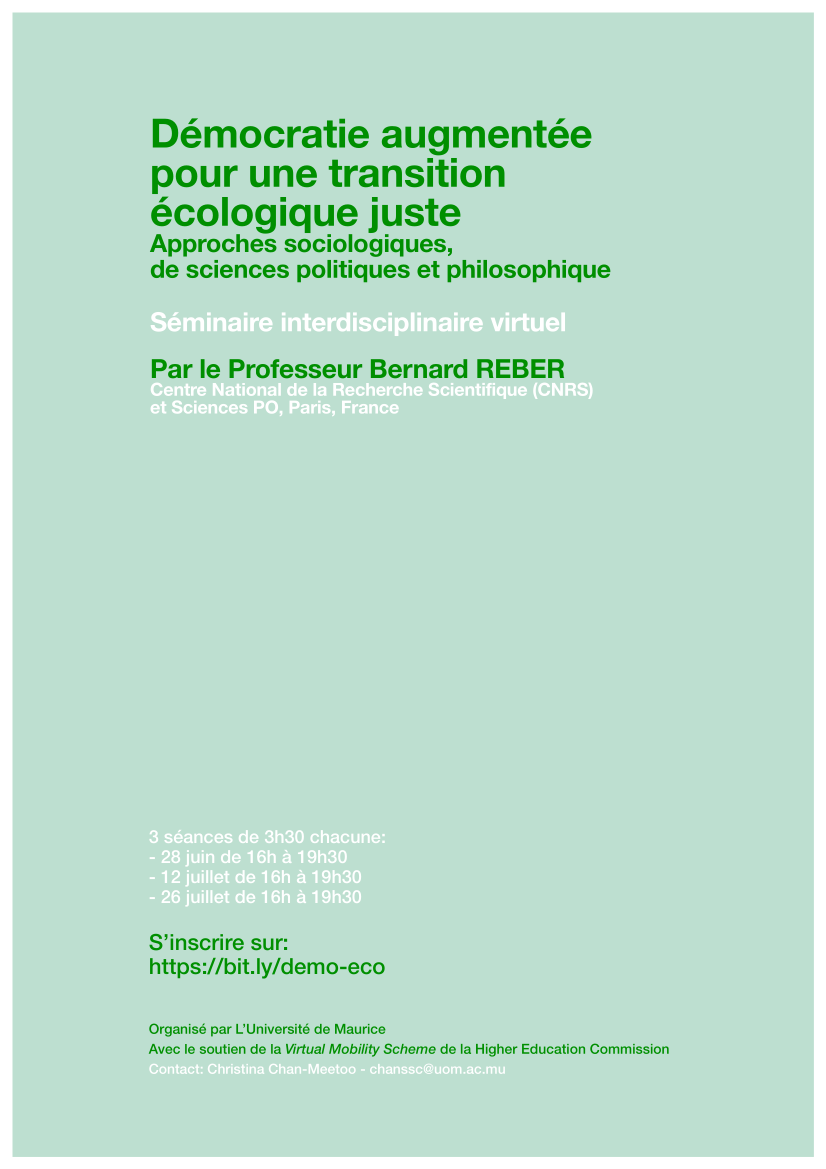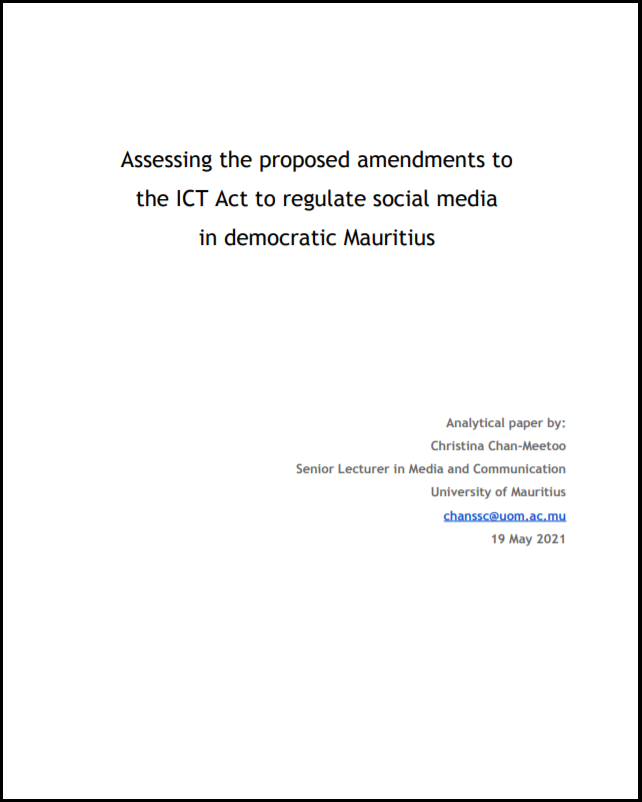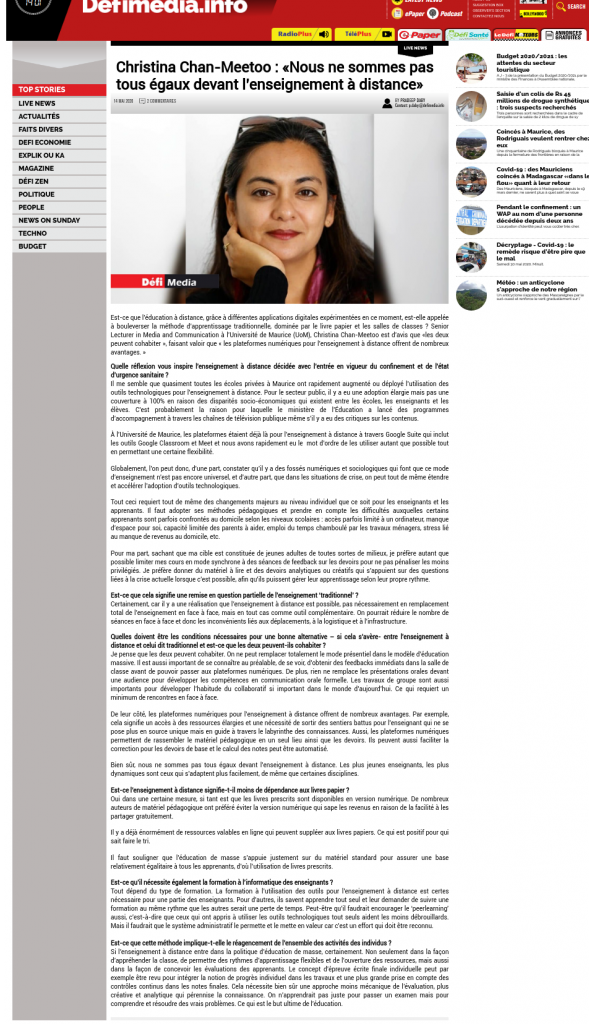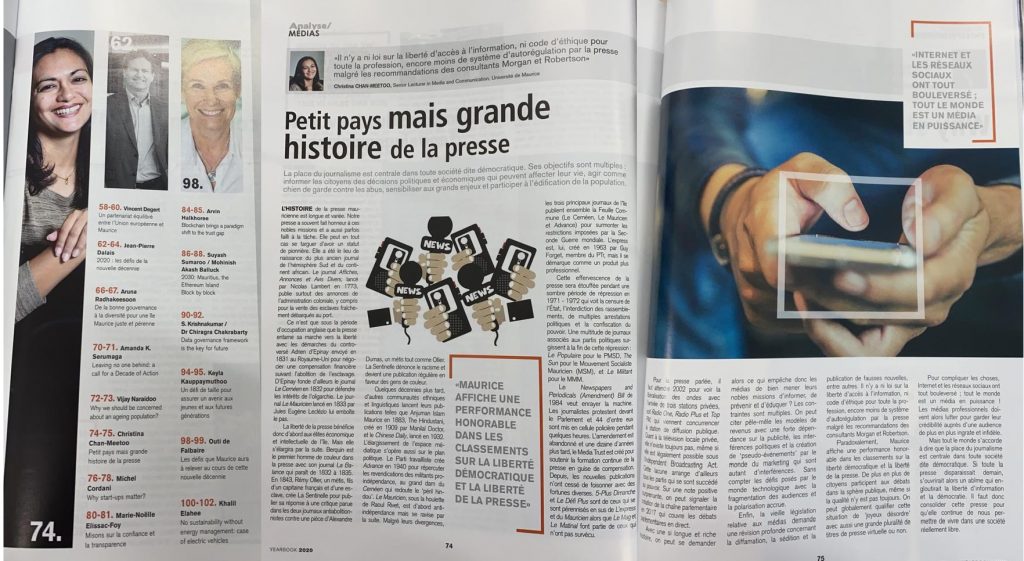 Séminaire virtuel interdisciplinaire
Séminaire virtuel interdisciplinaire
Approches sociologique, de sciences politiques et philosophique
Par le Professeur Bernard REBER
Centre National de la Recherche Scientifique (CNRS) et Sciences PO, Paris, France
S’inscrire sur: https://bit.ly/demo-eco
3 sessions de 3h30
28 juin, 12 juillet et 26 juillet 2022
De 16h à 19h30
Visant un public large : enseignants-chercheurs, étudiants, société civile organisée, fonctionnaires, syndicats, porteurs d’enjeux, industriels, citoyens…
Organisé par L’Université de Maurice
Avec le soutien de la Virtual Mobility Scheme de la Higher Education Commission
Contact: Christina Chan-Meetoo –
Description:
La transition écologique nécessaire pour réussir à faire face au réchauffement climatique requiert de faire preuve de beaucoup d’imagination démocratique et institutionnelle. En effet, il faut pouvoir mobiliser au bon niveau toutes les responsabilités, individuelles et collectives. Si ces responsabilités sont communes, selon les acteurs, elles sont également différentes. D’où le défi de savoir combiner changements de comportements individuels sur tous les plans et modes de production et de régulation collectifs, à tous les échelons territoriaux, du local aux Conférences des nations unies sur les changements climatiques (COP).
Les assemblées citoyennes pour le climat, associant de diverses manières citoyens ordinaires, experts et décideurs ont vu le jour ces dernières années. Ce fut le cas par exemple avec la Convention française citoyenne pour le climat (2019-2021), à la suite du Grand débat national provoqué par la crise des gilets jaunes, suite à une augmentation de taxe sur les carburants.
L’enjeu de ce séminaire est de bien comprendre les exigences pratiques et théoriques de ces modes de participation et de délibération innovants. Il offre à la fois le recul historique et comparatif d’expériences tenues dans diverses parties du monde. Allant au-delà de la description, il inscrit ces expériences au sein des réflexions philosophiques sur la démocratie délibérative, les rapports entre sciences et société ou encore l’innovation et la recherche responsables.
Les cas traités et les choix de gouvernance et d’institutionnalisation de ces modes de participation seront mis à l’épreuve de défis mauriciens. La République de Maurice pourrait-elle innover de façon originale en ces matières pour répondre à sa transition écologique, tirant parti de son pluralisme ?


